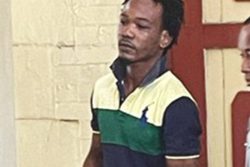The country’s leaders have an obligation to rise above differences and agree on a Chair of the Guyana Elections Commission as a unilateral appointment can seriously jeopardise democratic gains, according to Senior Counsel Ralph Ramkarran.
President David Granger and Opposition Leader Bharrat Jagdeo have been locked in protracted talks on the question of a new Chair. Granger rejected Jagdeo’s list of six names as it didn’t contain any candidate who was a judge, a former judge or eligible to be appointed a judge. Jagdeo has maintained that the list is valid but that a second list will be submitted once certain matters are clarified between him and Granger.
Writing in the last Sunday Stabroek and referring to the long struggle for electoral democracy, Ramkarran warned: “Our fragile electoral peace, although punctuated by violence and the refusal of the losers to accept election results, the latter of which has prevailed in relation to every elections since 1992, can only be sustained if the basic electoral reforms implemented since 1992 are retained. If the stalemate in the appointment of a Chair eventually leads to the unilateral appointment of a Chair of the Elections Commission, all that so many thousands of people have fought for and for such a long time, will be placed in serious jeopardy. All bets about tolerating elections results, however truculently, will be off.”
Ramkarran who once served as an elections commissioner said that while the formula for selecting a Chair is constitutionally enshrined and must be formally adhered to, it does not preclude the leaders from informally suggesting names and one of those names getting onto the list.
“If the situation arises where the President seeks to appoint a judge, a former judge or a person qualified to be a judge, Guyana’s entire future as a democratic polity, albeit with profound challenges, will be in jeopardy. The unwritten rule that fundamental changes to electoral practices since 1992 should not be undertaken without broad consensus, notwithstanding the letter of the law, must not be allowed to fall apart.
Our leaders have an obligation to rise above the differences and agree on a Chair of the Elections Commission”, Ramkarran declared.
A two-term Speaker of the National Assembly, Ramkarran said that the opposition appeared to have decided early on that the PPP/C will not go the legal route and challenge President Granger’s interpretation of the constitutional provision on the appointment of a Chair but to give the President the benefit of the doubt and co-operate in finding an agreed candidate.
“The basis of the opposition’s approach is not clear and its rationale has not been made public, but if it believes that the basic minimum for legitimate elections is an agreed Chair and everything must be tried to have such a person, then it is a wise course”, he said.
He also took a swipe at the opposition PPP, the party that he was a member of for nearly 50 years before resigning. He noted that toxic responses to the outcome of elections here by the losers, and the refusal to accept the results, are due to the history of electoral malpractice and the zero sum apprehensions that accompany electoral loss, underpinned by ethnic rivalry and insecurity.
“It was amusing but tragic to witness in the past the rapidity with which the Chairs of the Election Commission, nominated by the opposition, were reviled by that same opposition as soon as election results are out. Dr Steve Surujbally, the last of the stalwarts, was harassed by the PNCR in all the elections over which he presided. For the last elections the criticisms suddenly ceased because APNU+AFC won. The obeah that was deployed at his home in 2011 to ‘wuk pon e,’ apparently succeeded. In 2015, however, the PPP which had not previously publicly criticized Dr Surujbally, accused him of presiding over the rigging of the elections. How the tables have turned!”, Ramkarran asserted.









